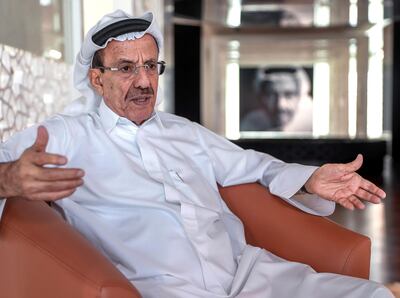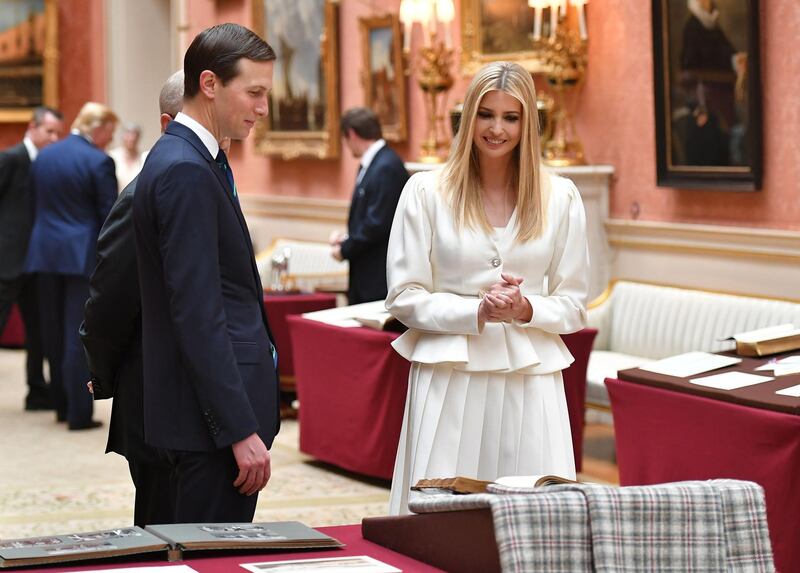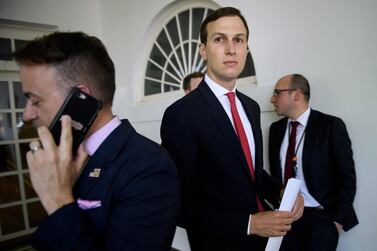The architect of US President Donald Trump’s "ultimate deal" angered Palestinian leaders on Sunday evening by questioning their ability to govern.
In a rare media appearance on Sunday evening, Jared Kushner abandoned his silence to respond to critics of a peace plan that relies on Gulf state funding.
After a torrent of political abuse from the Middle East since his plan to end the decades-long Palestinian-Israeli conflict began to take shape a year ago, Mr Kushner highlighted its economic component, which he says is aimed at boosting Palestinian prosperity.
“The hope is that they, over time, will become capable of governing,” he said.
Mr Kushner said the Palestinians “need to have a fair judicial system, freedom of press, freedom of expression and tolerance for all religions” before they could attain self-determination.
Palestinians officials reacted with anger, saying the current US-Israel alliance was the main cause of their people's hardship.
The US plan will face sceptical delegations from the region at an economic workshop entitled "Peace for Prosperity", organised by Washington in Bahrain for June 25 and 26.
Two diplomats in the Middle East said that despite Gulf differences, Saudi Arabia, the UAE and Qatar are wary of committing money to the minimum $50 billion Washington will seek in Manama without a well-defined political process.
The absence of that process, as well as souring US-Palestinian ties and Washington’s unwillingness to consult the authority about the conference, have led to a Palestinian boycott of the event.
But a prominent Emirati investor has urged Palestinian President Mahmoud Abbas, who presides over the authority, which has limited self-rule in the occupied West Bank, to attend the meeting.
Khalaf Al Habtoor, head of Al Habtoor Group, one of the largest conglomerates in the Gulf, said the boycott merely helped Iran and that it made little political sense to not attend without presenting alternatives.
"The Palestinian Authority should seriously reconsider its boycott of the conference if only for the fact that a stronger Palestinian economy translates to strengthening their political platform," Mr Al Habtoor wrote in the Israeli newspaper Haaretz last week.

The Trump administration’s diplomatic moves to strengthen the Israeli right and Mr Kushner’s refusal to commit to a Palestinian state also contributed to the rejection of the peace plan, even without knowledge of its details.
Mr Kushner expressed confidence that the Palestinians as a population would judge the plan on whether “it will allow them to have a pathway to a better life or not”.
But he did not say how his vision would include Gaza, where 1.98 million Palestinians live under a Hamas government that is not recognised internationally and is at odds with the authority.
In the rare interview with US cable channel HBO, Mr Kushner claimed that what he saw as Palestinian shortcomings in governing justified Israeli security forces to intrude in Palestinian areas.
He said it also contributed to low standards of living and a lack of an investment environment in East Jerusalem, the West Bank and Gaza.
The UAE Foreign Ministry welcomed participation in the Bahrain meeting while reaffirming its “support for the establishment of a Palestinian state with East Jerusalem as its capital”, a goal that almost all official Palestinian factions say has been gravely compromised by Washington’s plan.
Omar Shaban, head of Pal-Think for Strategic Studies, said that the Palestinians had moved too quickly in dismissing a plan they had not yet seen, but they were not the only ones at fault.
“The PA should have not have jumped to conclusions," Mr Shaban said. "At the same time the Americans have not created a negotiation process and want to put forward a solution. There is blame on both sides.
“This is not the first we have seen the concept of economic peace put forward and it did not succeed too well before.
"I don’t see how these grand projects can happen without an integrated Palestinian political system.”
One diplomat said Mr Kushner hoped to release the economic package first and receive backing from Gulf states before the political package, which is unlikely to be unveiled any time before the new Israeli elections in September.
“Gulf states won't want to do that," the diplomat said. "Kushner has kept the political part of the deal very tight-lipped. Unfortunately it leaves a lot of question marks."







